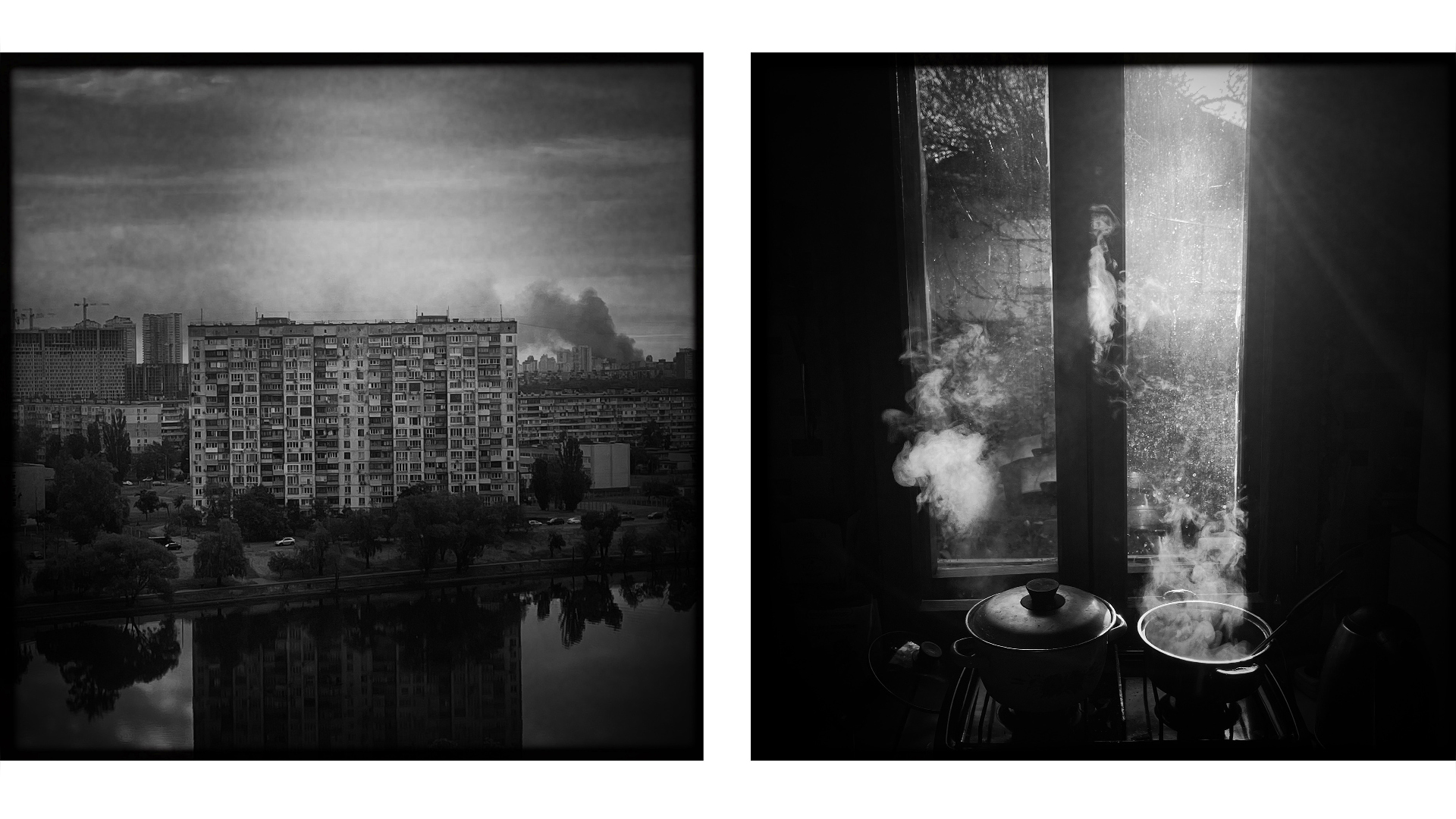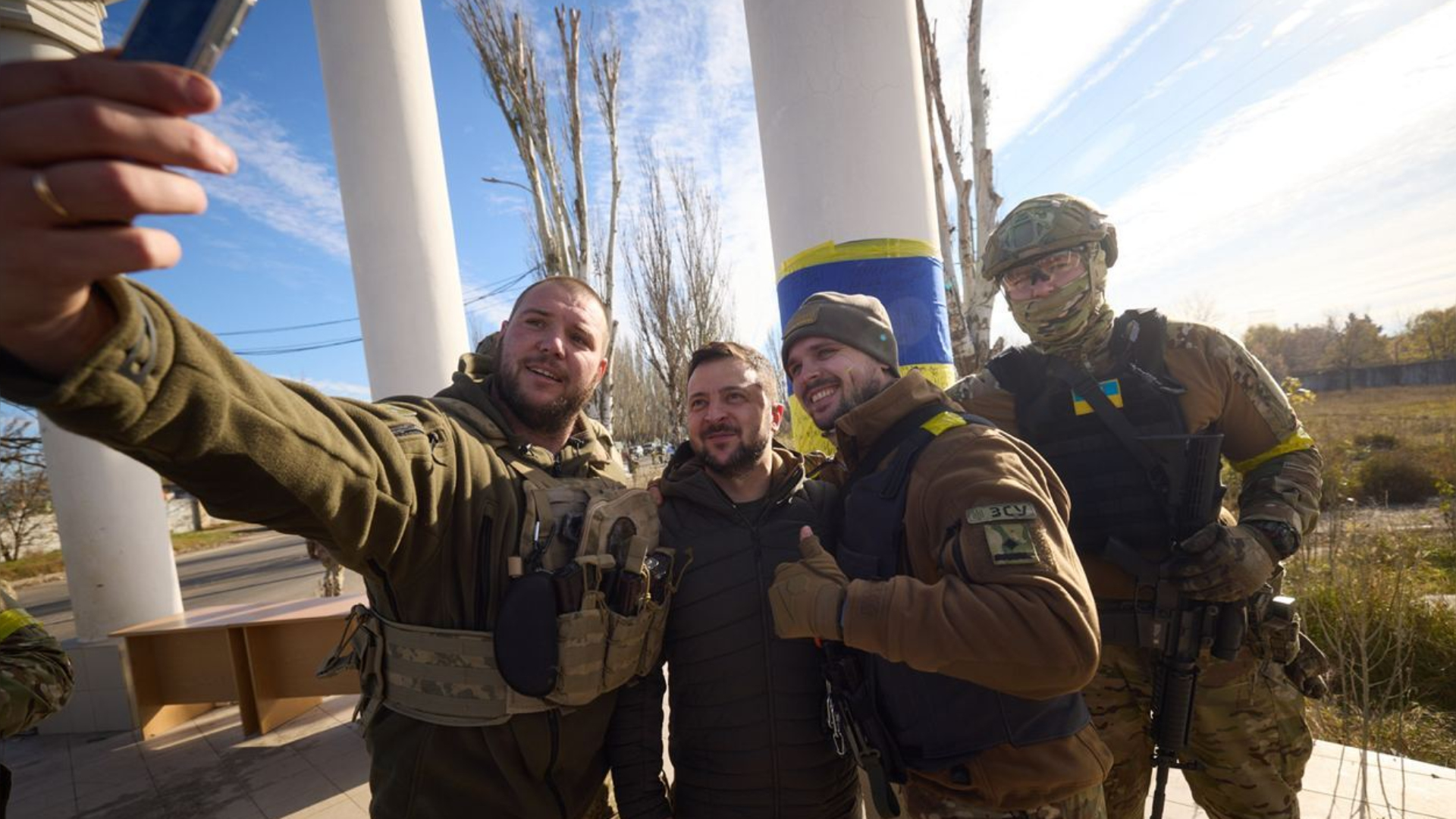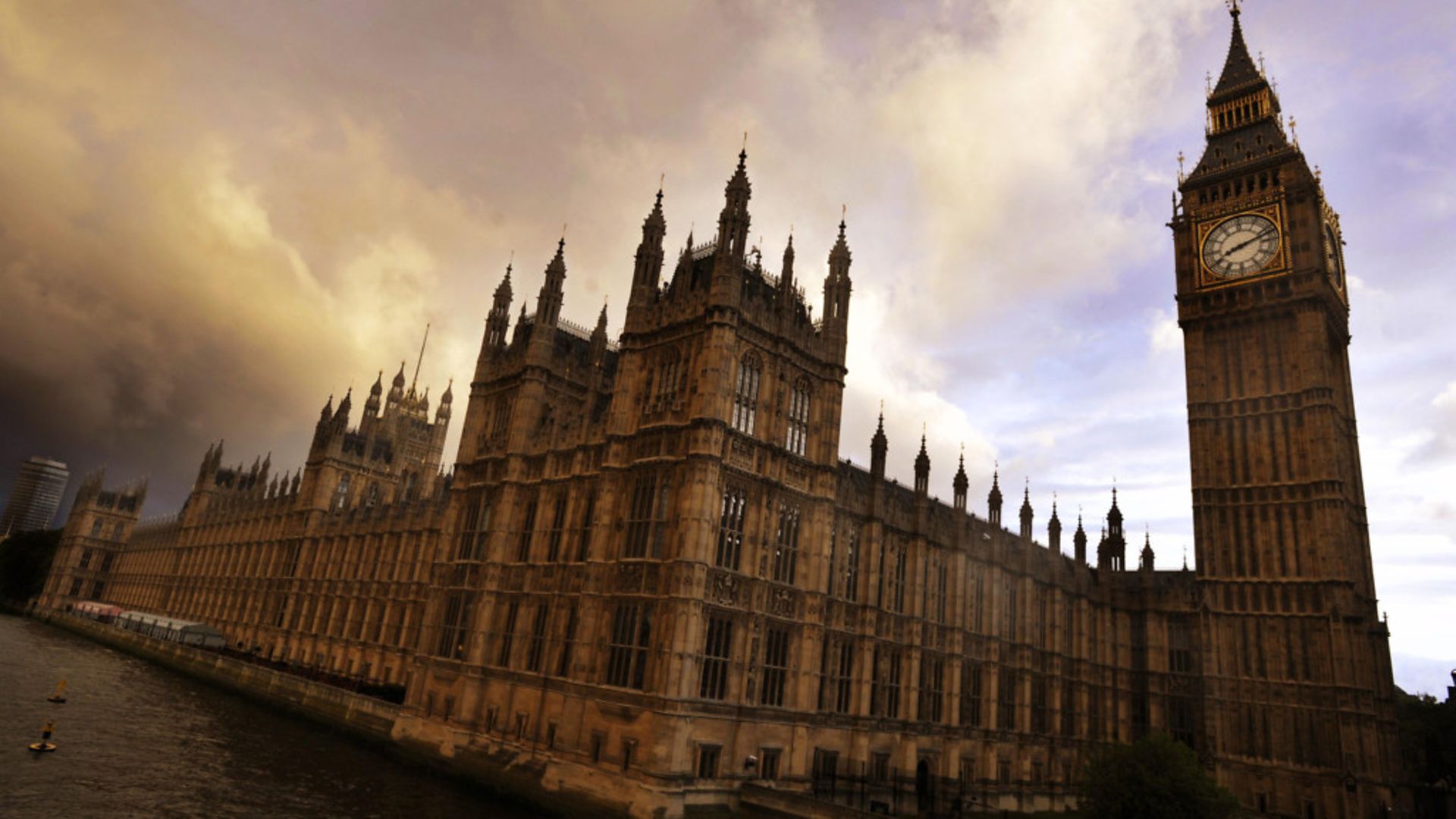Gera Artemova is a Ukrainian photographer whose work is a subtle, yet emotional evocation of her country and its plight. Her latest project, War Diary, was a contender for the 2023 Prix Pictet. On the second anniversary of Russia’s full-scale invasion, Artemova, 52, tells the New European’s Richard Holledge about her family, her work and her fears and hopes.
My birthday was on February 7, and it began with a massive air attack from Russia. It’s a horrible feeling: tons of metal and explosives flying to kill you on the day you have to celebrate life.
The evening before, my eight-year-old son had prepared a small gift for me. I spotted him carefully wrapping it in silver paper. We spent three hours in our bathroom during the attack, before Mykhail could give me his gift. I would really like to keep his childhood unshadowed, but it is impossible. He is a participant of the events and a witness.
I live in Kyiv with Mykhail and my husband, Kostiantyn. We have an apartment in the residential area on the left bank of the River Dnipro. Most of our family live in Kyiv too: my mother, my brother and his family, my husband’s mother, and his sister and her family. I’ve been living in this city all my life.
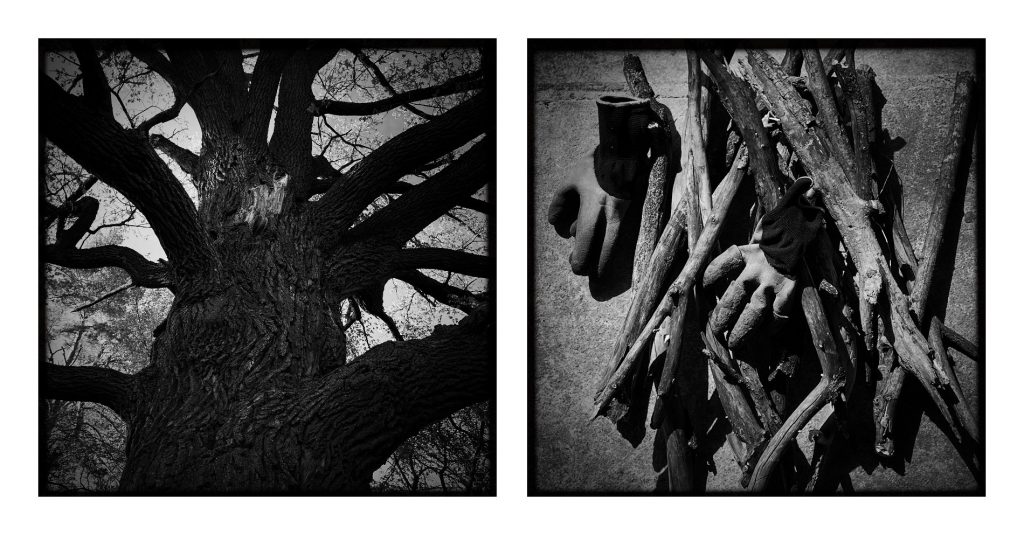
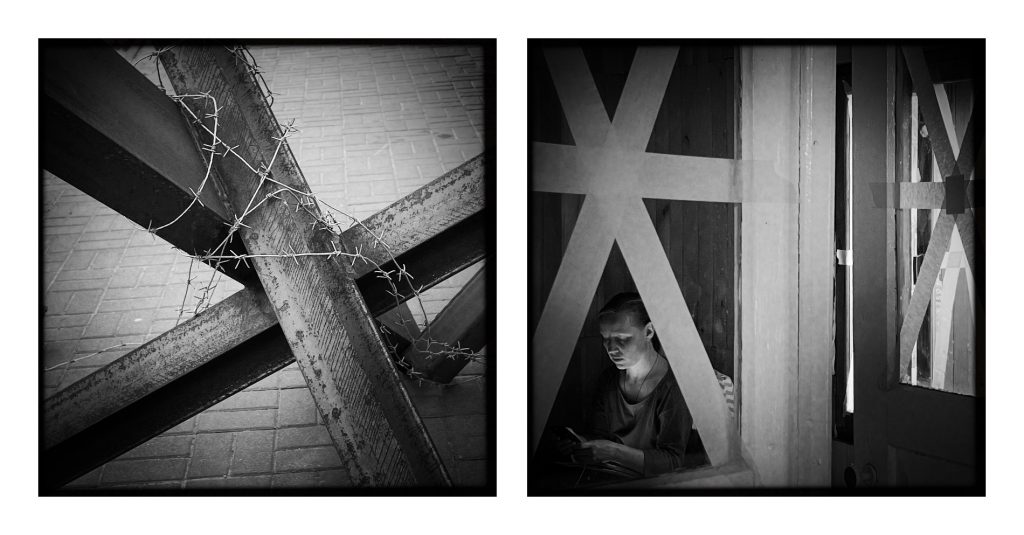
From my window, I can see Lake Telbin, a favourite holiday destination for Kyiv residents. In the summer, people from different parts of the city come here to fish, walk with their children, and relax. There are several beautiful beaches, a park, sports fields and a jogging track around the lake. Our neighbourhood is green and cosy, surrounded by water: the Dnipro River and the Rusanivs’kyi Kanal are nearby.
When I come across my photos taken here before Russia’s full-scale invasion, I feel sad because life was really happy before. The vast majority of my works are connected to the events taking place in my country. These events pass through my life. I am a sensitive and emotional person, and everything that happens affects me deeply. I do not create my works from the point of view of a detached observer, but by letting all my feelings pass through me.
Many of my friends who lived in the Donetsk and Luhansk regions, in Crimea, lost their homes after the beginning of the Russian invasion of Ukraine, which really began in spring of 2014 with the occupation of Crimea and the invasion of the Donbas region.
At that time, the war had not yet reached Kyiv itself, but its presence was in the air. It was in the news, the wounded were arriving at the Central Military Hospital, and farewells to fallen soldiers were held on Maidan Nezalezhnosti square.
My work Peaceful Life (2015) is dedicated to this experience of war, which you do not see yet, but you feel and are constantly aware of its presence. In fact, it became a bitter premonition of the full-scale invasion that took place in 2022.
This is a series of photographs taken around Lake Telbin, near my home, which show young people fishing, a family by a lakeside in the late afternoon sun, a girl playing with a dog. Peaceful, everyday moments, which contrast with real bullet holes shattering sheets of glass.
Peaceful Life is a visual metaphor for the brutal interference of war in everyday life, which is full of beauty.
Unfortunately, my premonition came true. When I woke up to an explosion on February 24, 2022 at around 5am, I instantly realised that my fears had become a reality.
My collection War Diary reflects the events during the full-scale invasion. As soon as I was able to recover from the first shock, I realised that I had to document and record what was happening from my own perspective.
The next day, February 25, we evacuated to the village of Vyhraiv (Cherkasy Oblast, 130km away from the capital), to a relative’s house – a tiny wooden house in which six people slept in one room on mattresses. We stayed there for three months and then returned home to Kyiv.
For the first three months of the full-scale Russian aggression, I was in a kind of frozen state. My feelings were muted and I could hardly cry. Probably it was a defensive reaction. But somehow all the feelings that existed somewhere deep inside and which I could not express in words were reflected in my visual diary.
Over two years we have endured air attacks by missiles and drones and we often hear the sound of explosions. I hate these sounds. You feel the vibration from the explosions somewhere deep inside your body, especially if it’s somewhere close. Your nervous system is constantly on edge, you’re always ready to act, you’re always checking your phone notifications, listening to every sound, sometimes hearing sirens or explosions when they’re not really there.
In the winter of 2022-23, Russia mostly attacked our energy and infrastructure facilities. The city was often plunged into darkness. I see this as a metaphor for the darkness coming to swallow everything. We are trying to protect ourselves from it with the fragile light of garlands.
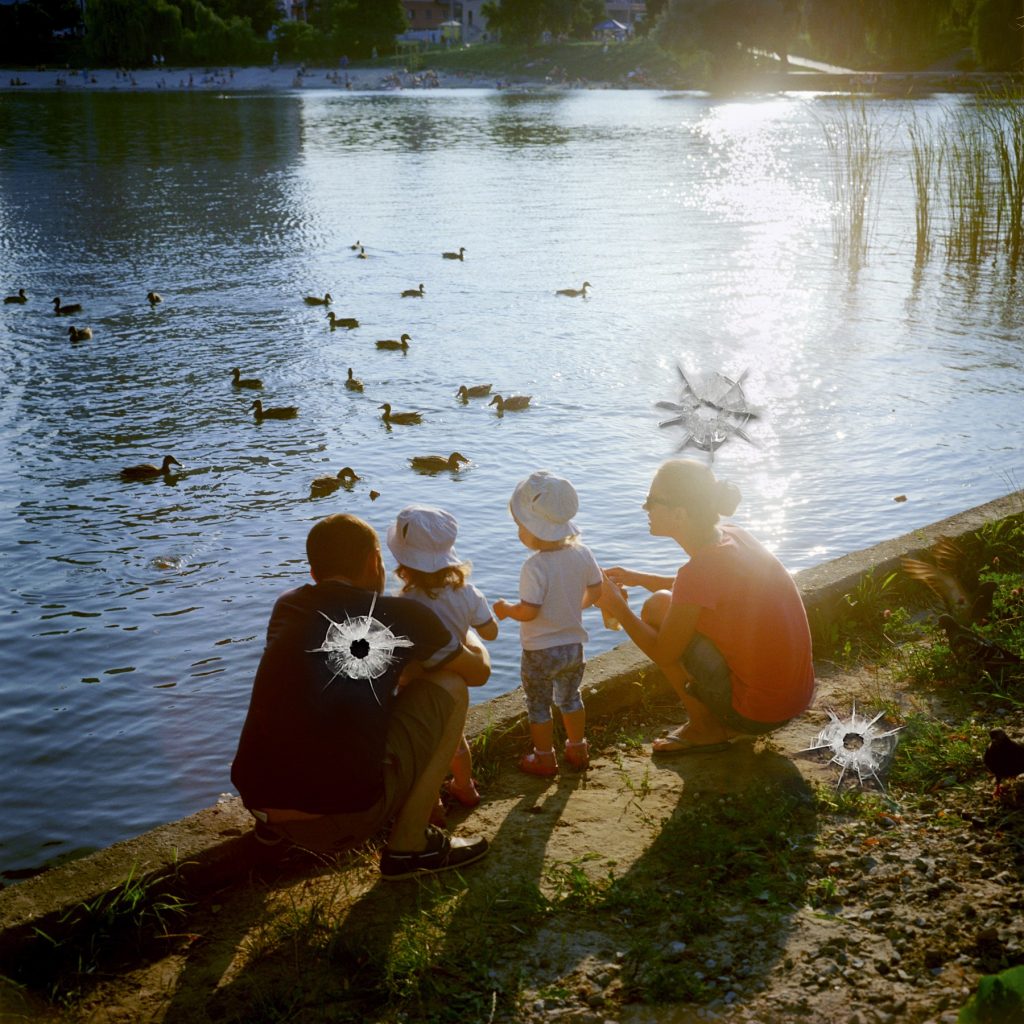
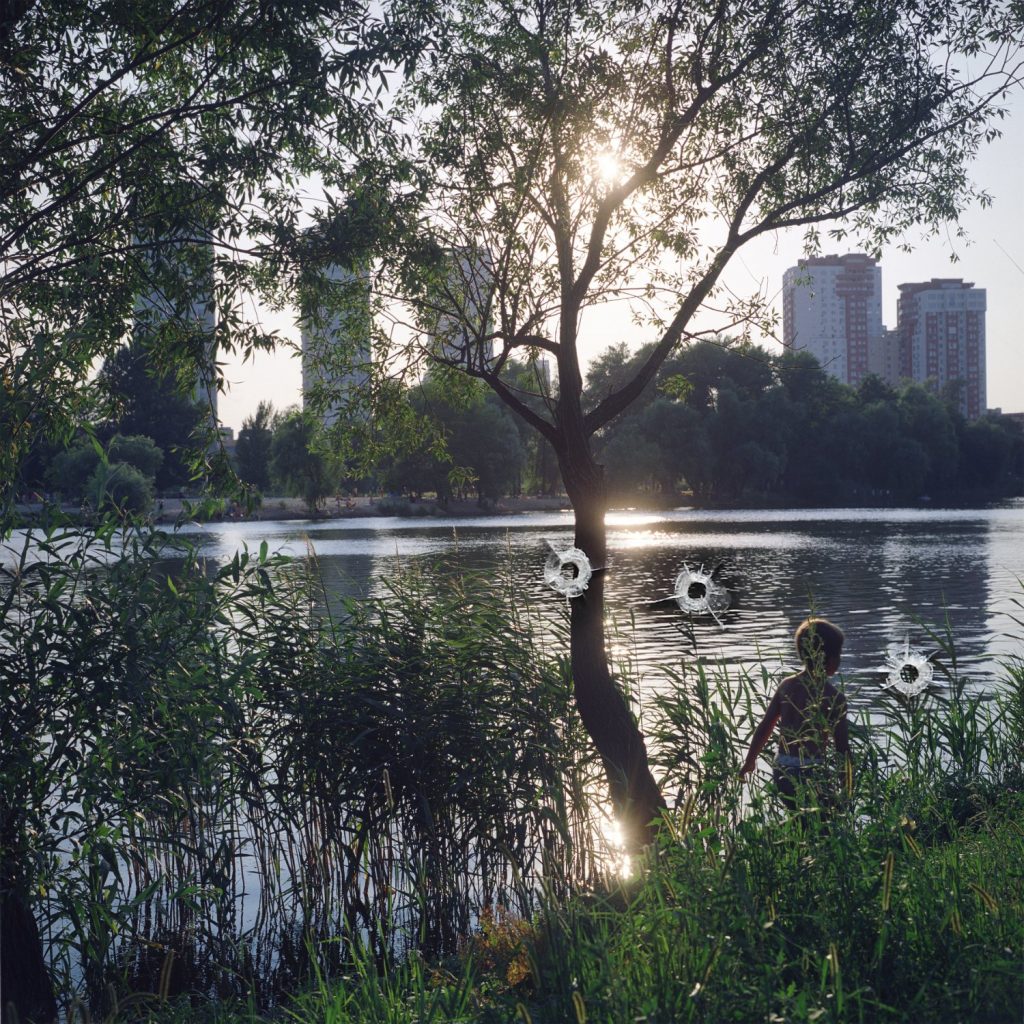
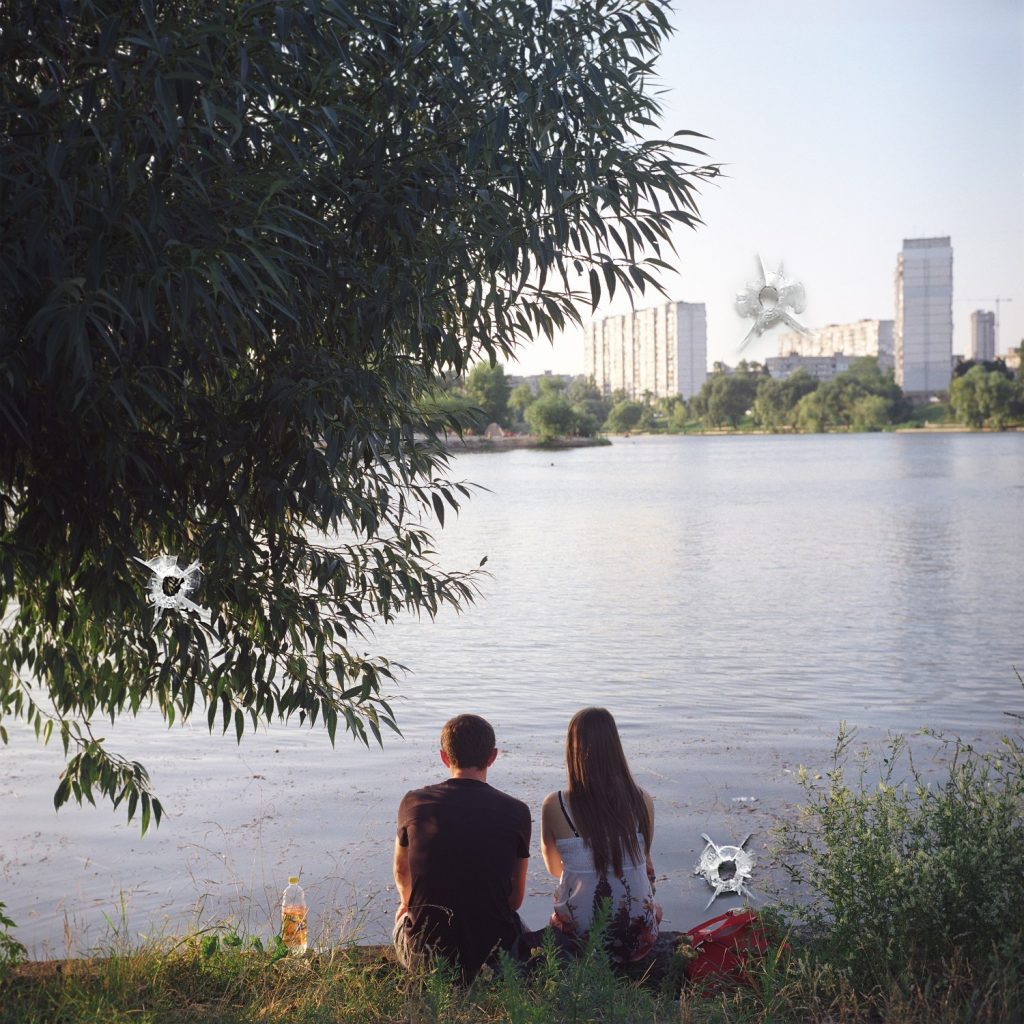
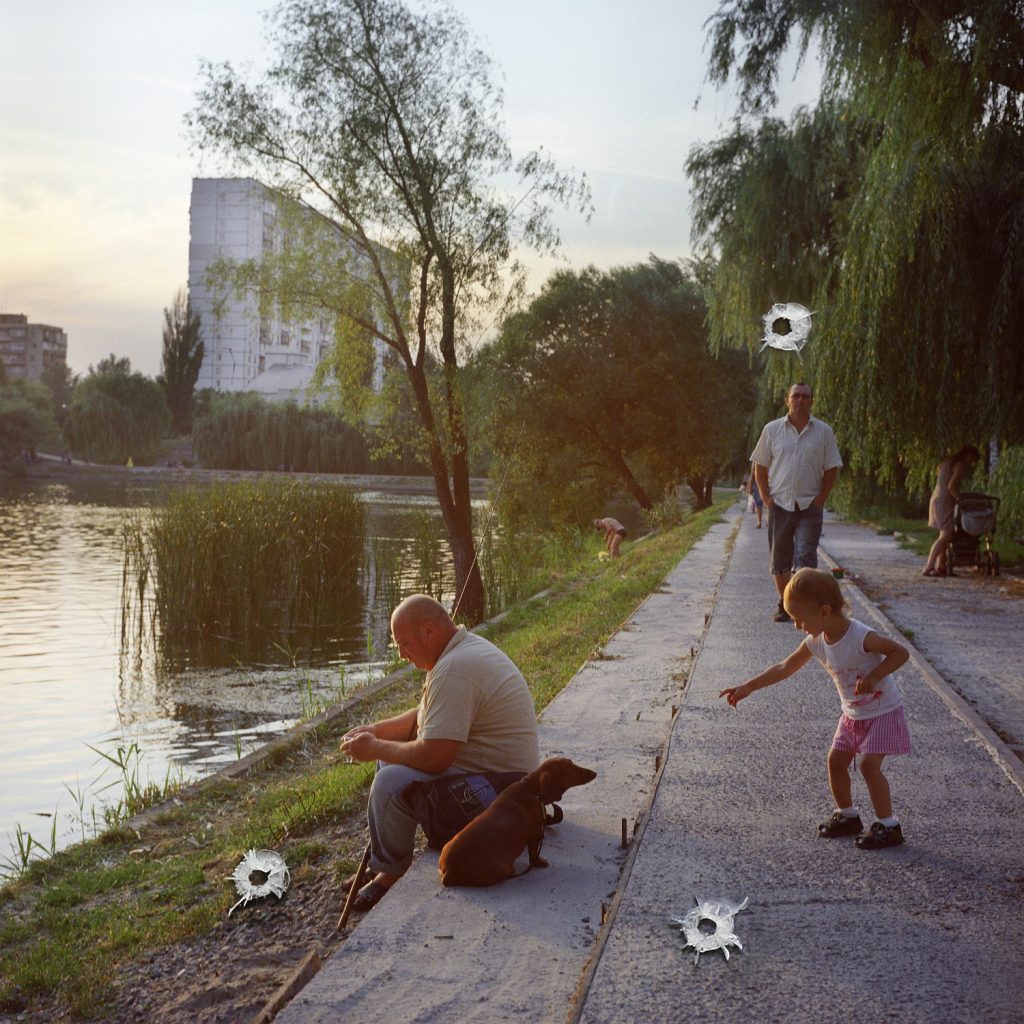
This winter Russia has changed tactics. They are striking the cities: industry facilities, warehouses, and residential areas.
The attacks have become more complicated, combining different means of destruction – drones, cruise missiles, ballistic missiles.
Many families across Ukraine are spending their nights in corridors or bathrooms (in accordance with the “two walls” rule) to protect themselves from drones and missiles. Schoolchildren often spend several hours sitting in the basement shelters or in the subway during air raid alarms.
The second anniversary of Russia’s full-scale invasion of Ukraine is approaching. And this is already the third winter – yes, the third winter, because March and April of 2022 were winter-like cold.
But for us, it’s like one endless horrible year that started in February 2022 and does not end.
I think that the world needs to understand the roots of this war more deeply. Russia is a totalitarian state, the successor to the Soviet Union. Crimes that remained unpunished in the past have sprung up in the present and now threaten the whole world.
My childhood was spent in the USSR, so I understand well what imperial politics are and what makes a totalitarian state built on lies and violence. I remember well the endless stream of propaganda poured into the minds of schoolchildren at the time, the obligatory communist organisations and regular mandatory sessions of political information for children. The violent policy of Russification that was aimed at erasing people’s memory, national traditions, and the Ukrainian language itself.
Human life was worthless then, just as it is in today’s Russia.
I started thinking that everything in the Soviet Union was built on lies when I was a teenager. Perhaps the first time was during the Chernobyl disaster (April 26, 1986). The government hid the truth for several days. Schoolchildren (including me) were forced to participate in the May Day demonstration despite the radiation contamination.
In 1991, when Ukraine’s independence was proclaimed, I was naive: I thought the USSR had collapsed and the totalitarian monster was dead, left in history. But it turned out to be alive, it just changed its name, and now it is attacking us and threatening the whole world, spreading lies and violence wherever it can reach.
I would like to return to the happy life we had before. But this is impossible, there will be no “happy end” in the classical sense. War has terrible destructive consequences. Hundreds of thousands of dead and wounded, destroyed cities, scorched and mutilated land, PTSD and mental illness, migration, social change.
Ukraine is fighting not only for its independence, not only for physical survival, but for human values. I see a good sign in the fact that many countries – not only those who are close to the borders of Russia – have begun to realise the possibility of the threat from Russia spreading to their territory. The governments of Sweden, Germany and Britain have begun to speak publicly to their people about the possibility of war coming home in the near future.
These are big changes in the minds of western countries. Awareness of the reality is very important. I hope that together we will be able to defeat the totalitarian empire and the ghosts of the past. Because this is a war of world views and values.
Gera Artemova’s War Diary is on show at Luma Westbau, Zürich until March 10 and Fotografiska, Stockholm, Sweden (April 19-August 18). It can also be seen in the exhibition Contra Spem Spero (Against all Hope I Hope) in Bari, Italy, and in Venice in May

